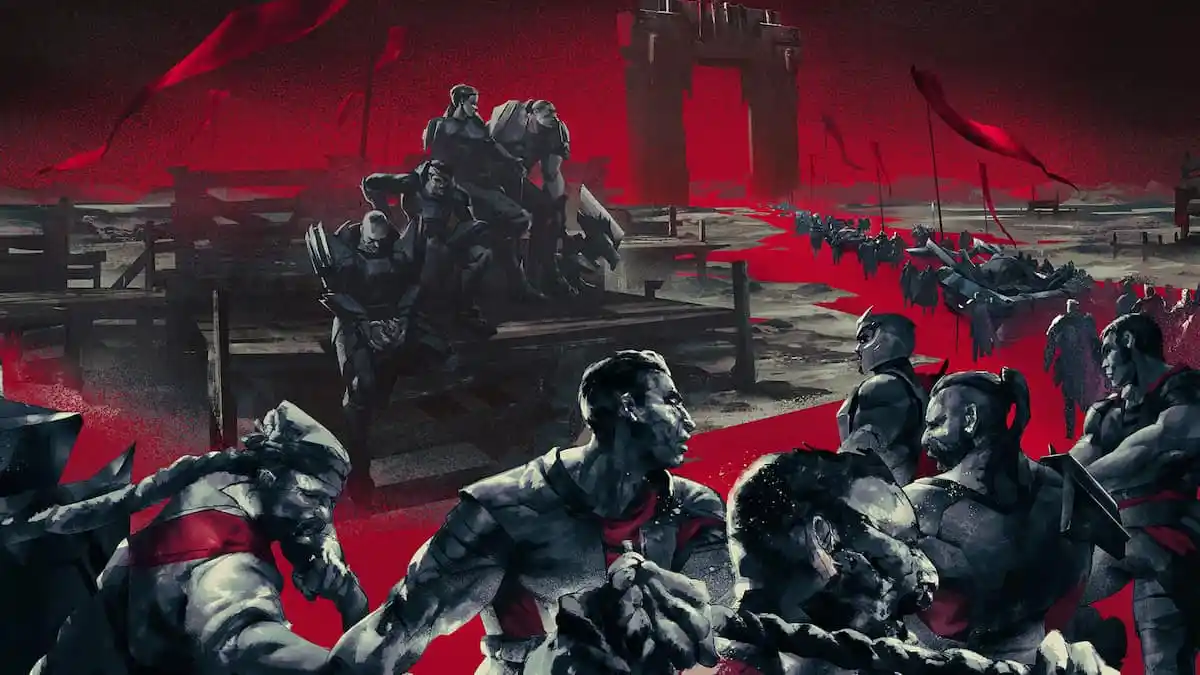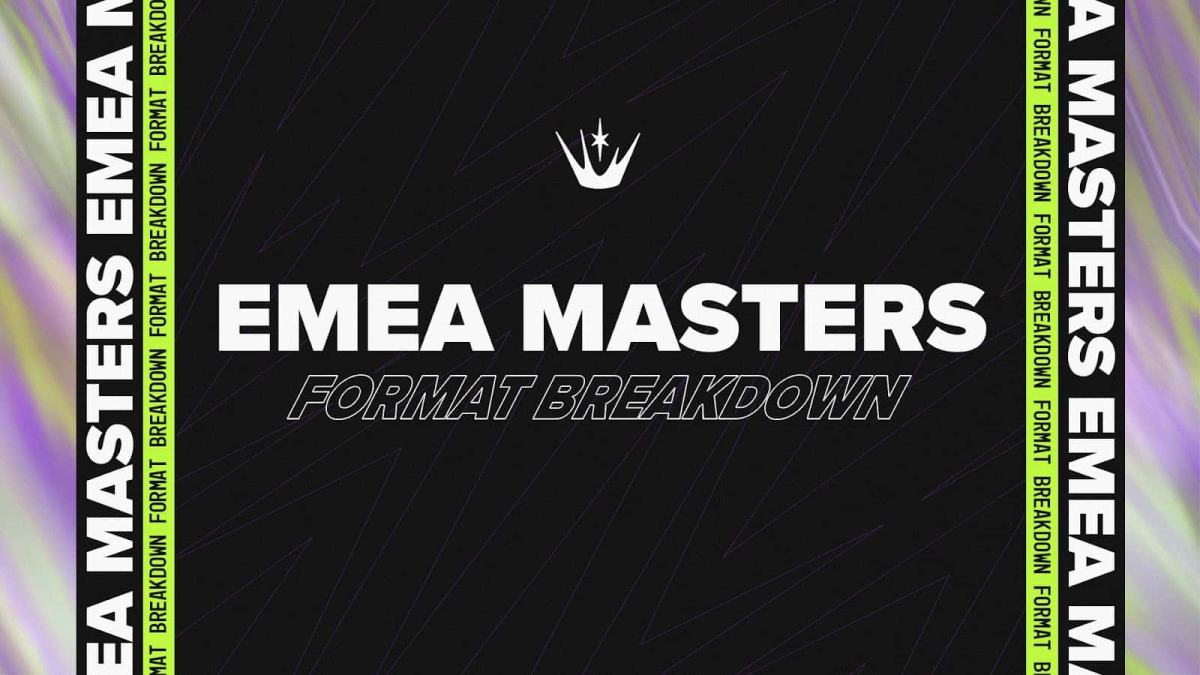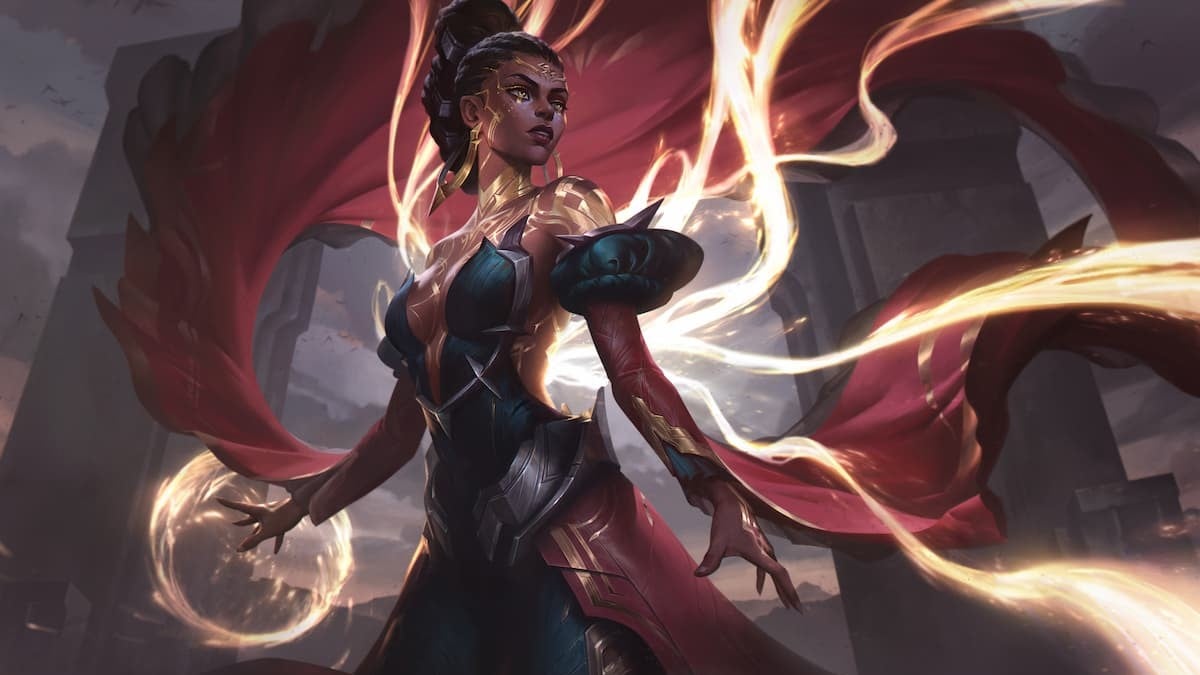
In light of his recently announced retirement, Liu “westdoor” Shu-Wei is one of the more controversial players in the history of League of Legends, often being lauded for his assassin play and in particular, his slippery mid lane Fizz. However, he underwent constant criticism for foregoing the laning phase and pigeonholing his team into specific compositions and playstyles, due to his fairly limited champion pool, in the latter part of his career.
Westdoor’s popularity in Taiwan began with his dominating solo queue play, topping the ladders in North America, before his home country had an established server. It took no time for the young Westdoor to begin competing in tournaments. Holding a reputation for his immaculate Twisted Fate play, he soon joined an amateur team known as the Tt Dragons. His amateur playing career included a multitude of strong placements in tournaments, only ever faltering against Corsair, a team containing the foundation of the original ahq lineup. Eventually, he would have the pleasure of joining ahq e-Sports Club.

Westdoor’s true professional career began in Garena Premier League (GPL) Spring 2013. Westdoor had only began playing about a quarter through the season after ahq’s mid laner, Artie, was benched. Westdoor came into the scene as raw solo queue all-star without any real sense of direction, often playing anything from Malzahar to Orianna. Westdoor initially impressed with strong lane mechanics and dueling ability on assassins, but was often poor in teamfights, especially on mage-like champions where positioning is more important. As a result, he and ahq were not particularly successful in his debut season.
However, Westdoor made major improvements in GPL summer. He began to develop his champion pool of assassins and found success as a solo splitpusher. Additionally, Westdoor began to focus the backline with his assassin like champions with timely flanks, setting up advantageous team fights with Lantyr. The flashy style of play sparked a great amount of interest in ahq, as Westdoor and Lantyr became stars of the region. Westdoor’s mechanical ceiling and aggressive solo plays brought immense energy to the region as he and ahq closed out GPL Summer 2013 in first place, being the first team to dethrone the Taipei Assassins.
A more experienced Westdoor with a more tailored playstyle became the very face of ahq, as they attempted to battle their way into Worlds at Season 3 Taiwan Regionals. However, Westdoor’s weaker early game starts led them to be exposed in the early game by both the Snipers and the Gama Bears, making for their early exit from the tournament. Despite missing their chance at the World Championship, Westdoor’s transition to professional play and development of his own style was huge for ahq. He brought forth an identity and direction for the team, something that was sorely needed for progress.

Some may have thought 2014 to certainly be the year of the Door, but the year did not come so easily to Westdoor. Westdoor required a break during GPL Winter and would split time mid, with Albis. Even so, ahq had an easy time dominating the League of Legends Nova League (LNL), while also placing well in the GPL, but seemingly were still missing something. Differing team synergies with the two mid laners was an issue and while Westdoor was clearly the better mid laner, he was not ran out each time. Westdoor’s break became a handicap in the playoffs, as there was no true carry threat with Albis mid, leaving ahq to finish a disappointing third in playoffs despite their regular season domination.
Westdoor returned to the helm of ahq in Spring with the determination to beat out TPA, after having lost to them in the Winter. Spring was relatively good to ahq and Westdoor, but similar to the past season, they were unable to truly quarrel with the best team. Westdoor’s continuous flirtation with traditional mages was detrimental, as he seemingly did not perform as well on these champions. His impact on these champions was very limited due to their generally inability to make solo plays or skirmish well in the earlier parts of the game. ahq eventually came into Spring playoffs as a clear underdog, against the likes of TPA. Westdoor’s Fizz in this series was the only thing that kept it close, as he tore through TPA’s backlines and solo-carried two games. However, Westdoor’s stardom was not enough to match the superior strategy of TPA, as they were bested in game five, disappointed again.

Summer signified a change for Westdoor and ahq, as they had struggled to truly be the top dog, until this point. Westdoor began his transition into the style that so many remember now, playing almost entirely assassins, instead of simply favoring them. A supportive cast of Prydz, Naz, and GarnetDevil was put in place to facilitate Westdoor’s playmaking style. While the team obviously grew by having a more focused approach to the game, it would not be enough. ahq and Westdoor would came in second, being picked apart by TPA’s superior macro play and their new found Korean coaching. Westdoor, once again, fell short of being able to truly rule the region.
Nevertheless, Westdoor and ahq had a relatively easy go of it in Worlds qualifiers, qualifying for the Season 4 World Championship through Southeast Asia Regionals. While ahq’s performance as a whole was lukewarm, Westdoor’s individual performances on the likes of Fizz and Zed were fantastic. Westdoor had finally earned his chance to compete at the World Championship and looked to prove his skill on the world stage.
Unfortunately for Westdoor and co., they were placed into a seemingly impossible group featuring the titans from China and Korea, EDward Gaming and Samsung White. At the very least, ahq would have an easy matchup against the Turkish team, Dark Passage. While the majority of games were not very competitive, Westdoor had a number of exciting plays that Western fans seemed to admire. His performances on TF, Fizz and Zed earned him the overblown respect of the Western fans and made the local Taiwanese fans proud. ahq even managed to sneak a win off of EDG, where GreenTea’s hook struck Namei under the T1 tower, giving ahq a chance to advance in the tiebreaker. They were not so lucky in the tiebreaker, but ahq showed some fight for the home crowd and the Western world.
While Westdoor and ahq did not particularly succeed in the context of Worlds, Westdoor showed the fighting spirit of the Taiwanese region. The general trend of failure from Taiwan felt slightly alleviated and with the prior announcement of Taiwan splitting from the GPL, to form the LMS, things were looking up. There was even more reason to be excited for the split now. Westdoor and ahq had played runner up to the Taipei Assassins for the entirety of 2014, but ended up outperforming them at Worlds, on a larger, more important stage.

ahq set out to 2015 with a goal in mind, to go further than a tiebreaker. The roster made big changes, bringing in Ziv from Hong Kong Attitude Priest and moving up Albis and AN from Logitech Fighter and Logitech Snipers. The goal in mind, was to finally have players around Westdoor that could match his ability to impact the game. Unfortunately, things did not pan out so easily, Westdoor being at the center of his team’s issues.
Westdoor became the prime target for enemy teams in the inaugural split of the LMS, being the target of a triple ban more often than not, with Zed and Fizz being banned every game. His champion pool was tested as he struggled to incorporate new champions into his pool, failing on niche picks like Mordekaiser and popular assassin, LeBlanc. Westdoor was unable to procure the same flashy plays, the same impact that he had shown on the world stage due to his inflexibility. ahq didn’t necessarily suffer for it, but with a poor understanding of macro play, it was missed.
In addition to this focus, the LMS was already more competitive than the GPL. A league full of players and mid laners from Taiwan and Hong Kong made it impossible for Westdoor to simply dominate on an individual level. Mid laners like Toyz, Chawy, Maple, and even Wish worked him over the split, forcing him to adapt and improve. While Westdoor didn’t change, the atmosphere around him did, and it was choking his impact on the game.
Going into LMS spring playoffs, ahq was expected to be knocked out as fourth place without the slightest whimper. However, a confusing player switch of Albis to support and Mountain to jungle combined with a new cinderhulk meta allowed the team to roar. Westdoor found niche picks in Karthus and Cho’gath to play throughout the tournament, as he focused solely on becoming a 5v5 threat, rather than his tendency to be a solo duelist. ahq dominated the gauntlet, only losing one game, and finishing first over season favorites, Flash Wolves.

ahq finally looked like a team again, having a firm grasp of the meta and finding their strength in skirmishing and 5v5 teamfights. However, one aspect was quite different; Westdoor was merely a supporting character to the likes of Ziv and AN, with Mountain and Albis being the main cogs to getting them going. Westdoor was still the captain of ahq, but his team were the helmsman, as he cruised with ahq’s new style onto the Mid-Season Invitational.
Westdoor’s performances at MSI were fairly similar to the performances he held in Spring playoffs, reasonably impactful, but nothing too exceptional. He had his fair share of solo-outplays on the likes of Fizz and was great in skirmishes for ahq in group stages, where they thwarted the likes of Team Solo Mid and Fnatic. Unfortunately, Westdoor and company’s newfound skirmishing and teamfighting ability were not enough to propel them past their quarterfinal opponent, EDward Gaming, as they fell 3-0. Despite ending 3rd/4th, Westdoor and ahq showcased rapid development of not only themselves, but the LMS scene as well.
Coming back to Taiwan for the LMS Summer Split, ahq was seen as the strongest team coming in, based on their strong gauntlet performance and relatively good performance at MSI. ahq delivered, dominating the Spring Split, to the point of only dropping two games in 14 bo2s. While I wouldn’t call it a renaissance, Westdoor showed up much better than he did in Spring and even added champions such as Ahri and Diana to his small pool.

He was very successful in jumpstarting his bot lane with early roams and securing objectives for ahq via his split pushing and early game skirmishing. While Westdoor stuck to his old playstyle, he melded it into becoming a supportive carry for the likes of AN. That didn’t stop him from making highlight reels, as Westdoor continued to collect solo kills in the Summer split.
However, the rise of HKE exposed the way ahq had to work around Westdoor’s style, showing how inflexible it really was. Proper wave management and usage of poke compositions, combined with smarter teamfighting, had ahq challenged. Despite this, ahq’s positional advantages and tendency to take unusual fights had them claim victory in the end, as the LMS’s first seed for Worlds.
ahq’s success at Worlds had very little to do with Westdoor, but some of their failures certainly did. His reluctance to deviate from assassins and inability to play Azir left ahq very limited in the pick ban. Westdoor typically had a tough time in lane as well, in part due to his champion picks. While some Western fans may have expected the same Westdoor from Worlds 2014, his competition was more steep and the meta was less friendly to his traditional champion pool. Westdoor was traditionally poor in the laning phase, but he had enough of an impact, latching onto his tried, true, and tested Fizz.
Fortunately, ahq was able to make it out of groups this time around, taking games off Fnatic, Cloud9, and Invictus Gaming, and winning their subsequent tiebreaker against C9, only to face SKT T1 in quarters. Matched up against SKT T1, there were relatively no expectations for ahq and Westdoor; they were simply outclassed. While Westdoor showed up rather poorly against SKT and ahq was unable to contest the Korean powerhouse, he had the pleasure of solo killing Faker, twice, on his precious Fizz, in the final game of his career.

Westdoor had many highs and lows in his career, often defined by the meta and level of competition, as he was mostly the same player from late 2013 on. He was outstanding at times in the GPL and brought a level of excitement that no individual could previously. His ability to make individual mechanical plays captivated fans and inspired competitiveness in a dying scene. Three split victories, two Worlds appearances, and one top 8 Worlds finish later, Westdoor is past his time. The competition is steep and it is time for him to go. He may not have been one of the best players, but he was one of the most exciting.






Published: Nov 1, 2015 08:08 pm